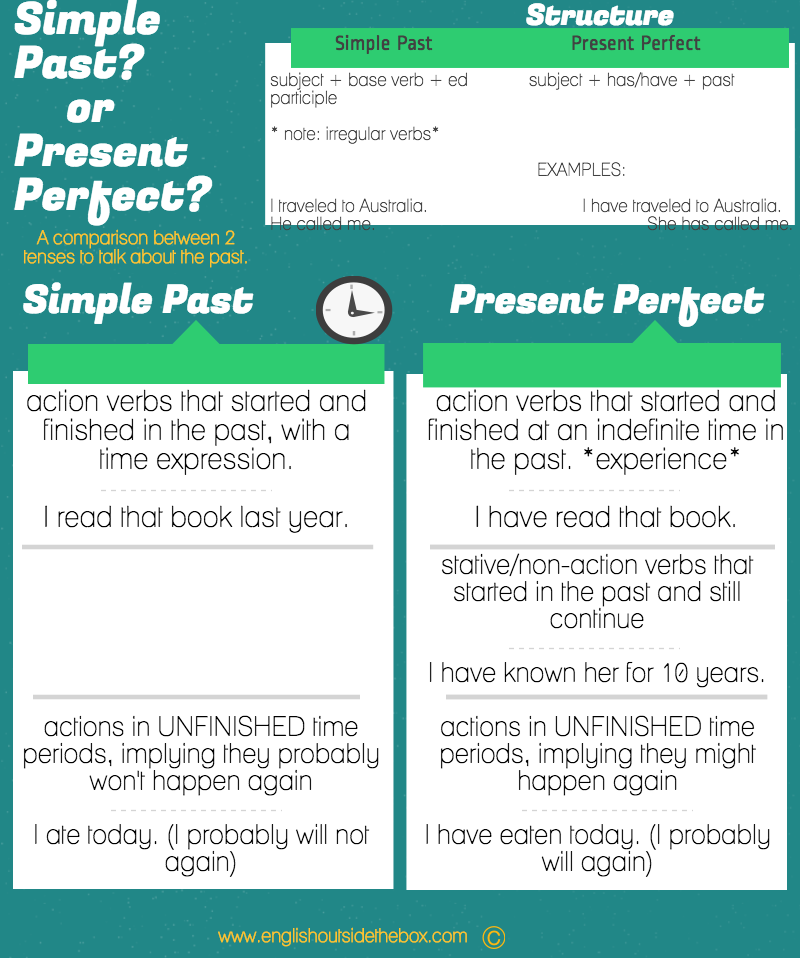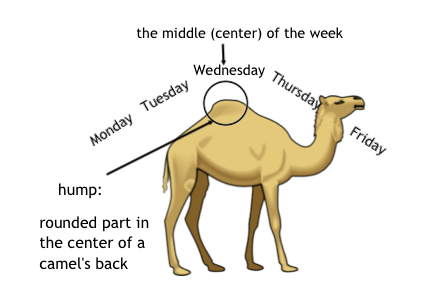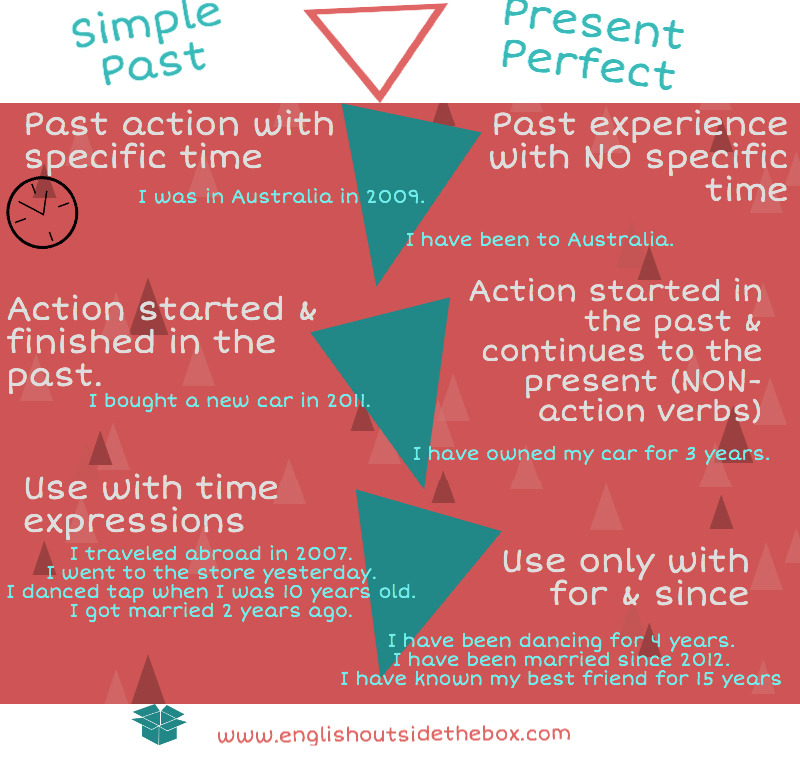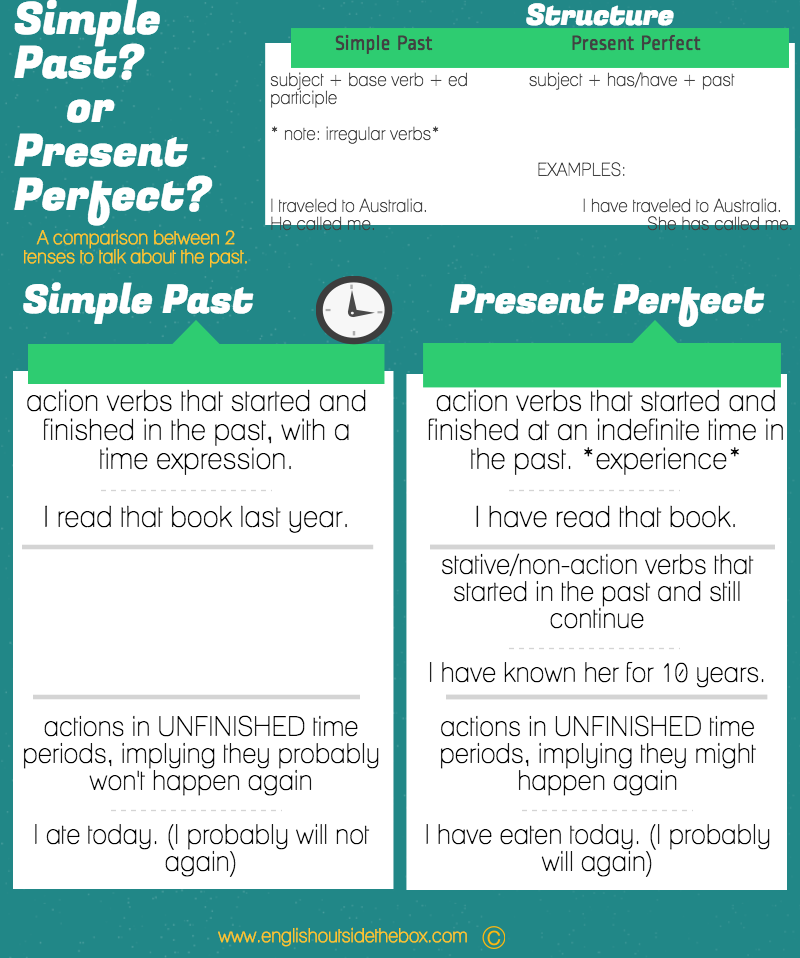
Simple Past vs Present Perfect vs Present Perfect Progressive
Hey! Happy Hump Day!
I haven’t written much this week (or should I say, “I didn’t write much this week.” ?) but be prepared for some exciting stuff coming your way through the weekend! Today is just a quick post to share some grammar tips when talking about the past [and connecting to the present]. I shared a post on Instagram yesterday, did you see it? It is also accessible via Facebook, here.
Well, the grammar challenge asked students to fill in the blank with the correct grammar: ate, have eaten, or have been eating – but there were very important key words that signaled the correct (best) answer to be: C – have been eating
WHY?
Let’s examine the sentence take a closer look at these important key words:
The hummingbirds have been eating a lot this week, and I’m sure they’ll be back tomorrow!
this week: represents an unfinished time period, because when I posted this challenge yesterday (Tuesday), the week still had a few more days to come to an end. It also is a time expression that represents a recent time around now, or connecting the past to the present.
they’ll be back tomorrow: this hints that the action will happen again (very important when deciding whether to use the simple past or present perfect)
RULES
Simple Past:
Actions that started and finished in the past, at a specific time [most often with time expressions]:
-The hummingbirds ate a lot last week.
Actions in an unfinished time period that probably won’t happen again:
-The hummingbirds ate a lot this week, but they are probably too full for more!
-I saw a lot of hummingbirds this week. (but, for example, they will not come back because I didn’t put out more food or they’re full, etc..)
Present Perfect:
Actions with stative (non-action) verbs that started in the past, and continue to happen in the present:
-I have had a hummingbird feeder for 6 months.
Actions that represent experience, started and finished at an indefinite time in the past (NO time expression):
-I have seen many hummingbirds.
-Actions in an unfinished time period that probably will happen again:
-I have seen a lot of hummingbirds this week. (they come everyday because I provide food, so I will most likely see them more this week)
Present Perfect Progressive:
Actions with [action] verbs that started in the past and continue to the present:
-I have been feeding the hummingbirds for 6 months.
*Focus on duration, not completion*
The hummingbirds have been eating a lot this week.
IN OTHER WORDS…..
In the picture I posted, you could see the hummingbird eating at the moment I took the picture. So, the hummingbirds were in the progress of eating, the focus of the sentence was duration (something [eating] continuing). This is the reason I used a progressive tense. As you can see in green, I stated that they’ll return the following day, this is strong indication that the action will happen again.
I strongly recommend trying to create some of your own sentence examples to practice the information that you learned. Reading and understanding the information is just the first step, applying it and using it correctly is next, not to mention the most important! Feel free to comment below, or connect with me and other learners on social media.
MORE RESOURCES
Enjoy these infographics, especially helpful for the visual learners.
If you like what you see, please show your love and support by sharing this article! Sharing is caring, after all! ♥




Hi Jennifer:) thank you so much for your work . As no native English speaker I really hate Present perfect /sorry:) in English. Why it must be so complicated??:):) but your explanation is great and my life much easier now 🙂 keep posting 👍👍👍👍
[…] To use a time expression, other than For and Since, you have to use the simple past. […]
[…] You can review the future tense here, the past perfect here, and review some of the differences between the simple past and present perfect here. […]
I loved it! It tooks my doubts away!
I appreciate so much your work. I can feel the love you put on it! Such a good job! 😀 😀
Great news!!! I’m happy for that, let me know about any more questions and remember, more answers are coming via Instagram tomorrow!